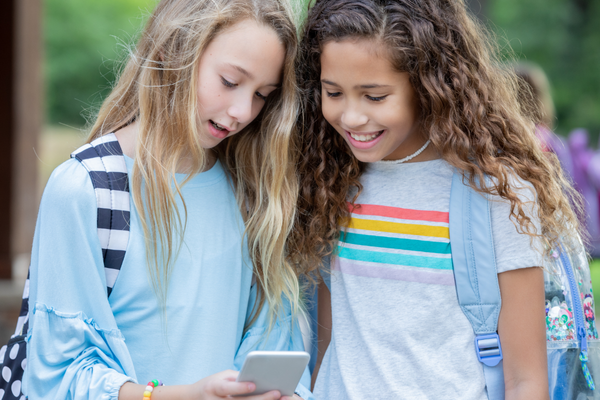As states similar to Florida continue to propose social media age restrictions, LGBTQ+ and BIPOC youth face growing barriers to accessing crucial online spaces that support their identities, mental health, and social connections. Digital platforms offer these young people a safe haven where they can find supportive communities, explore their identities, and access resources that may not be available in their immediate surroundings. However, with the rise of laws like Florida’s Senate Bill 3, which seeks to restrict minors’ access to social media without parental consent, these vital online lifelines are becoming increasingly difficult to reach. The bill, which goes into effect January 1st, 2025, was argued by its supporters to be a way of protecting minors from cyberbullying, inappropriate content, and mental health challenges, but it risks isolating marginalized youth who rely on these spaces for affirmation and community.
The impact of these restrictions goes beyond Florida. This bill has broader implications as other states consider similar measures, limiting the ability of LGBTQ+ and BIPOC youth nationwide to freely explore their identities and connect with supportive networks. As these digital barriers continue to rise, it is essential to recognize the profound consequences such restrictions will have on youth mental health, connection, and overall well-being. I sat down with Brittany Frizzelle, Reproductive Justice Organizer with PowerU, to explore the impact of these restrictions on LGBTQ+ and BIPOC youth. PowerU’s mission is to organize and develop the leadership of Black and Brown youth and Black women in South Florida so that they may help lead the struggle to liberate all oppressed people.
Mental health implications of social media restrictions
The implications go beyond just missing access to a social network. “Social media breaks down geographical barriers,” Frizzelle explains. “It allows youth in isolated areas to connect with others who share similar struggles, whether it’s navigating racism, homophobia, or gender identity.” For youth in areas where traditional resources may not be accessible—whether due to lack of LGBTQ+ support systems in their schools or restrictive family environments—social media becomes their primary source of education and support. Losing this resource creates a profound emotional and psychological void.
For many LGBTQ+ and BIPOC youth, social media is an essential tool for navigating the complexities of their identities. As Frizzle points out, “When we lose a sense of belonging, it can lead to depression, anxiety, isolation, and, in some cases, even self-harm.” Social media spaces offer a form of belonging, validation, and connection to others who share similar experiences. For youth living in areas where their identities are marginalized or outright rejected, these platforms provide access to vital resources and support. However, by restricting access to these spaces, states are robbing LGBTQ+ and BIPOC youth of the support they need.
The role of social media in education and connection
Social media is also a critical tool for education. Frizzelle says that youth facing issues like body dysmorphia and confusion around gender identity sometimes use social media to find the language and tools to understand their experiences. In states where LGBTQ+-inclusive education is actively resisted or limited, social media fills the gap. “Social media is a huge tool for education, especially in restrictive states where the sex ed curriculum is lacking or non-inclusive,” says Frizzelle. Platforms like Instagram, Tumblr, Reddit, and TikTok provide access to educational content that can help youth process their experiences, gain clarity, and build their self-esteem, which may not be available elsewhere.
The role of social media in building community is equally significant. Frizzelle emphasizes how these platforms allow youth to “engage, question, and get information” in a safe, less intimidating space. For youth coming to terms with their identity, social media offers a way to explore without the immediate pressures of physical spaces where they may not feel comfortable.
Challenges of access and moderation
Despite the importance of these digital spaces, they are not without their challenges. For one, the online harassment, doxxing, and lack of proper moderation in certain digital spaces can make it difficult to maintain safety. Frizzelle highlights the need for peer administrators or moderators in online communities who can filter out harmful voices, ensuring that marginalized youth can find and access safe environments without fear of further harm. As she notes, “The best success stories I’ve heard have peer admins or moderators who are willing to filter out any harmful or rude people.”
Moreover, there are significant disparities in access to technology. Marginalized youth often lack the resources, such as a reliable internet connection or the latest devices, that are needed to participate in digital communities. These access issues exacerbate the divide, leaving certain groups without the opportunity to connect with others or access educational resources, which deepens the social isolation many already face.
As we push for inclusive online spaces, it’s crucial to address the systemic barriers that hinder access to resources and communities. By advocating for equitable, moderated spaces and working to bridge the digital divide, we ensure that no one, especially those in marginalized groups, is left behind.
Florida’s social media age restrictions reflect a larger trend across the country. Other states are considering similar limitations, which could significantly affect the mental well-being of LGBTQ+ youth nationwide.



